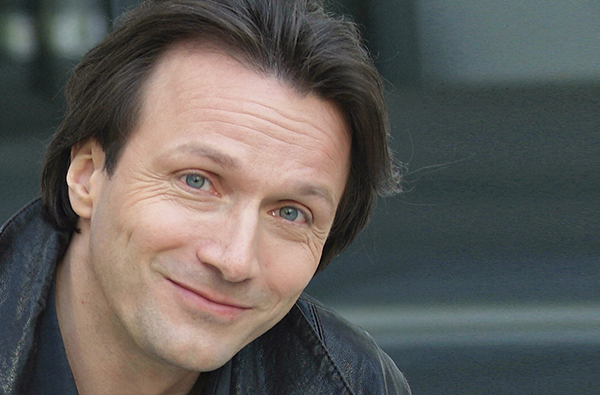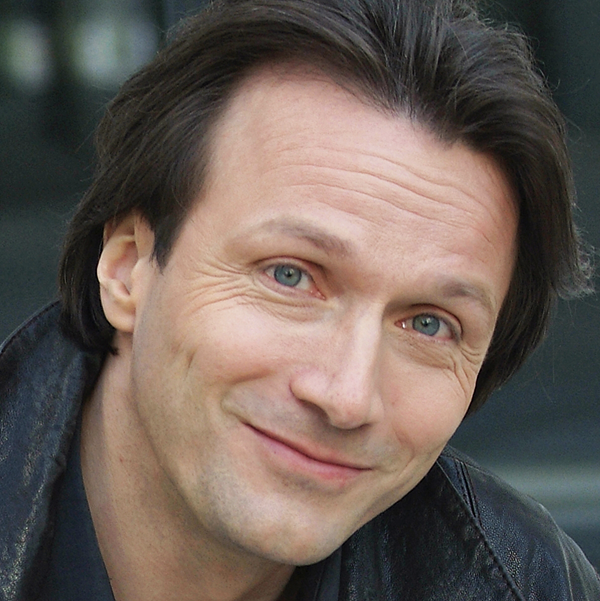by Antonio Rossano
Article first published here and reproduced with the kind permission of L’Espresso.

(Wolfgang Blau – credits: ©sagapacific)
Wolfgang Blau is Director of Digital Strategy of The Guardian. This is the original English-language transcript of the interview Antonio Rossano conducted with him which was first published in the Italian weekly L’Espresso.
Mr. Blau, in a recent speech talking about the “old media” crisis and the inability of publishers to build a new editorial, cultural and economic system able to support their business, you said “It’s very difficult to change a mindset and learn on the go when there is so much to learn and seems you have so much to lose”. How difficult is it?
It is the nature of innovation that it comes easier when you don’t have to protect an already existing business model but can start from scratch. The challenge, however, of having to innovate without damaging your already existing revenue streams is not unique to newspapers only. Just look at Google. Google’s giant revenue is still dependent on its AdWords product, a business concept from thirteen years ago. In Google’s engineer-driven culture, problems tend to be viewed as questions to which a scalable algorithm will be the answer. A mindset that has proven very successful commercially, yet also limiting. Was it despite or exactly because of this engineer-driven culture that Google missed the cultural shift to social media and left the field to Facebook? Is it despite or exactly because of newspapers’ excellence in printed journalism that most of them do not succeed online? In either case, it is not so much the fault of the incumbent or a lack of good will as it is the laws of innovation that make newspapers so vulnerable to more agile startups that have everything to gain and nothing to lose. As a market leader, your biggest strength often is your biggest weakness, whether you are a newspaper or a search engine. (Source)
Richard Gingras, director at Google News, talked about a “permanent revolution”: can you explain what it means and how it will affect digital news and newspapers?
We are used to speaking of the internet revolution or the digital revolution. The underlying assumption of using the word “revolution” is that there is a phase of turmoil after which a new equilibrium will be found again. In times of revolutions, old orders crumble long before new orders become visible through the fog. What happens, though, if this perceived turmoil and fog is the new normal? There is currently no indication that any imaginable new order will ever reinstate the scarcity of high-quality content or the physical limitations of distribution that have both proven so profitable for newspaper companies in the past.
Some of the intellectually more conservative publishing companies are now trying to artificially reintroduce the scarcity of content by lobbying against the online news offerings of public broadcasters, by exerting peer pressure on other publishers to go behind a paywall with them or by pushing for copyright reforms that at least limit the playing field for aggregators like Google News. However successful these efforts might be, none of them will significantly reduce the ever-growing amount of freely available journalism or will ever reinstate the scarcity of content and distribution platforms that was the economic foundation of newspapers’ high margins.
In this “permanent revolution”, what happens to traditional journalism ethics and values such as duty, accuracy, courage and transparency?
I think all of these virtues will remain relevant, but the methods with which journalists can ensure them are changing. As an example, responsible online newsrooms go through frequent trainings in order to ensure that they won’t quote tweets or Facebook postings about breaking news events that they couldn’t verify first. In principle, this behavior reflects a duty to accuracy that was no different in print-only newsrooms of the past. Now that so many citizens consume news primarily through social media platforms, however, a journalist’s service to society not only consist of properly verifying the sources she uses, but should include a duty to proactively debunk false rumors once they cross a certain threshold of visibility in the social sphere. A newspaper’s duty to accuracy also means to acknowledge that on many topics at least some of our readers are far more knowledgeable than we are ourselves. Because of this fact, we have the added duty to accuracy to make ourselves approachable for the experts amongst our readers on any given topic, to gather their input, to verify and bundle their input and then to hand their information back to our readers within proper context and with proper presentation. The best newsrooms are the ones that never cease to hone their traditional journalistic skills while also collaborating with their readers and other journalistic institutions. Why? Because it is now possible and it allows for better journalism. If newspapers don’t do it, someone will.
Mr Blau, you said “Many of the media institutions you are working with today may not exist anymore in ten years”. So we should be worried…
When journalistic institutions disappear, a community loses more than the jobs and incomes of the families affected. Especially when daily metropolitan or regional newspapers close, one of the most precious legacies that gets lost is the social fabric they have created over the course of so many decades. If someone would visualize the social relations of a regional newspaper to its readers, to local clubs and associations, to businesses, to political stakeholders, to cultural institutions, NGOs or to sport leagues, you would see a social node as dense with lines as no other organisation in town. If you would ignore the laws of innovation for a minute, you would think newspapers should have been the natural inventors of social networks. But they weren’t, because they had no incentive to do so and we cannot rewind history. No, I am not too worried about the future of journalism. What I am worried about is the future of the internet and our digital rights as citizens. If everything we do online – as journalists or simply as citizens – is being spied upon by governments, society is compromised and will slowly suffocate from a lack of free-spirited discourse and online research.
German newspapers are experiencing, later than in other counties, a big crisis now. You come from that country and culture, what do you think about it and what’s the right way for German publishers?
Germany has seen its fare share of the newspaper crisis already. It is not immune to the structural changes, but they will manifest themselves a few years later than in other countries. Germany’s economic strength stabilizes the advertising revenue of many newspapers and limits the amount of readers who cancel their subscriptions just so they can buy food or pay their rent. In addition, most German newspapers have always relied less on advertising revenue and more on copy sales and subscription revenue than newspapers in the UK or the United States. German copy prices have thus always been comparatively high. A copy of the Washington Post still costs only $1.25, the San Francisco Chronicle only $1. A Frankfurter Allgemeine Zeitung costs €2.20, a Sueddeutsche Zeitung costs €2,30 which equals $3,18. American papers can’t raise their copy prices as fast as they should if they don’t want to lose more readers. Looking at the loyalty of readers, it might also play a role that the median age in Germany is 45 years and thus much higher than in the UK or France with 40 years each or in the United States with 37 years. And then, of course, there is the protection that the German language sphere provides against the huge amount of high quality online content in the English language sphere. But, as is the case with every structural advantage, this shelter also prevents German online publishers from becoming as competitive as they would have to be in the English language space.
Is this a landscape where the issues of scale, proportions and audience are significant?
We are used to various segments of the internet being dominated by a small set of global players, whether that is the search business, online auctioning, book retailing or the segment of social networking platforms. Something similar is already happening to journalism. While most national market leaders are still staring at their domestic journalistic competition only, one can already witness the emergence of a small set of globally dominant journalistic institutions which can leverage their advantages of scale and offer journalistic products with which most national titles in Europe cannot compete anymore. The brands that come to mind are the New York Times, the Wall Street Journal, the Guardian, BBC News, possibly Al Jazeera and certainly several of the newer publications such as HuffPo and Buzzfeed who have their own plans for international expansion and should be taken seriously. I would hope that more European news organisations would start English-speaking joint ventures so that continental Europe is better represented in this global set of journalistic leaders. Europe needs a pan-European media sphere in which it can have informed real-time conversations with itself and the world. Europe desperately needs a voice.
———
Wolfgang Blau joined The Guardian in April 2013. From 2008 to early 2013, he was the Editor-in-Chief of Zeit Online in Germany. During the five years that Wolfgang led Zeit Online, its unique visits more than quadrupled while Zeit Online’s annual revenue grew by more than 280 percent. Zeit Online has won Germany’s most important awards for online journalism and was the first German newsroom to win the American ONA’s Online Journalism Award for its data journalism. In 2011, Wolfgang won the award of Germany’s chief editor of the year. Prior to joining Zeit Online, Wolfgang worked in California for eight years, covering the media and technology industries of Silicon Valley for the German newspaper Die Welt and broadcaster ZDF. Wolfgang is a Vice President of the Global Editors Network in Paris.



